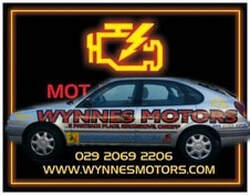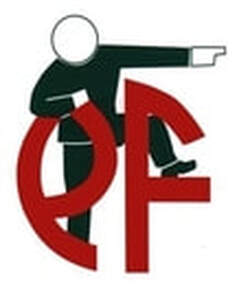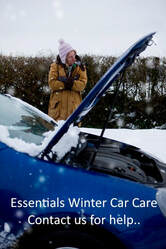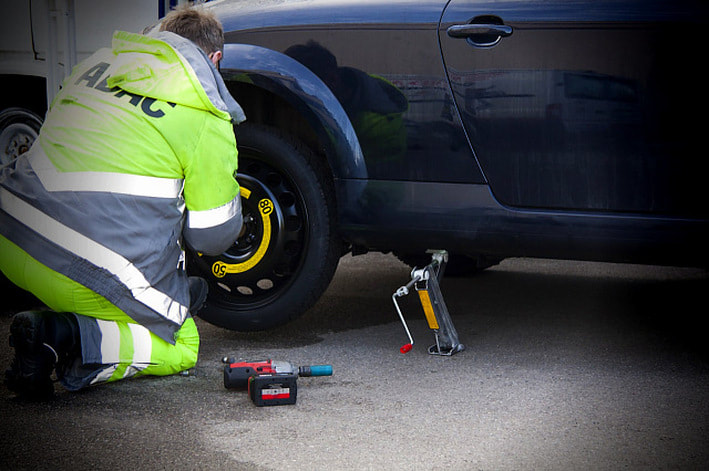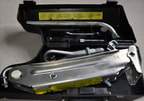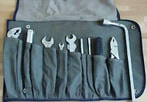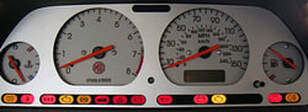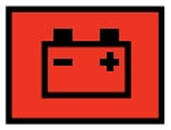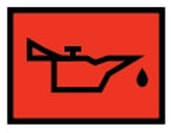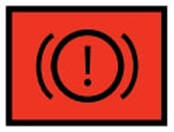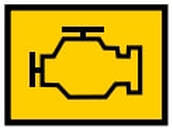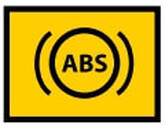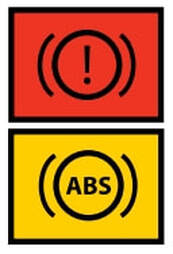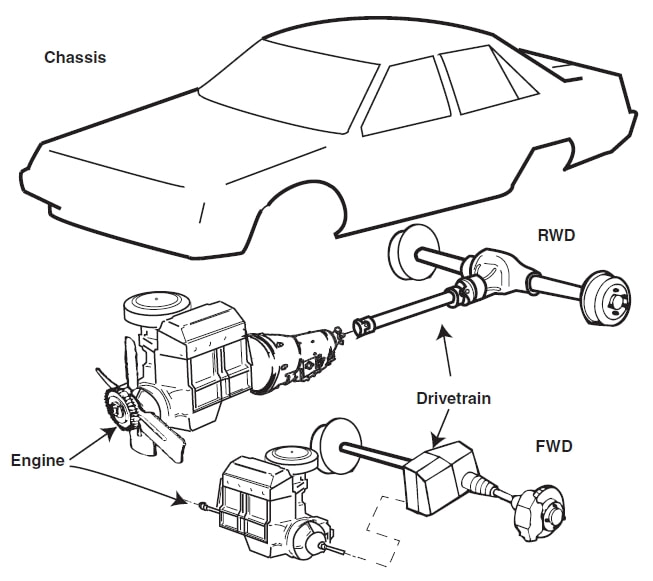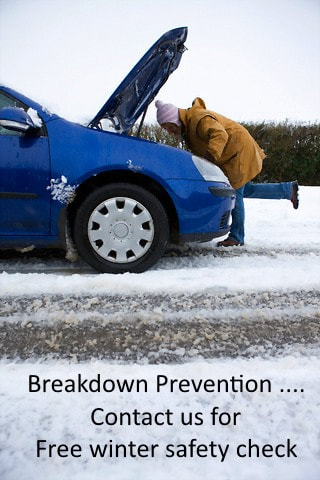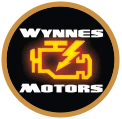Car servicing, Car maintenance, Car Insurance, Tyre fitting centre,
Cardiff Auto Shop
|
0 Comments
Car Maintenance basics26/7/2013 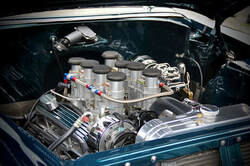 The following guide is a basic check-list on necessary car maintenance, we should carry out before hitting the road. We also offer some suggestions for car tool-kit and in-car essentials, information on driving requirements, some tips to consider as the seasons change, and a guide to what are the most common dashboard warning lights mean. It is always recommended that we refer to our car manufacturer’s handbook to find out how to perform each of these checks, and for any information relevant to a particular vehicle. If in doubt, it’s always worth contacting a professional mechanic (Wynnes Motors) for advice. Check the Engine Oil Regularly: Our vehicle needs motor oil, which is available to buy at our garage, to lubricate its moving parts. Motor oil minimises friction, which can cause engine to overheat. It keeps the moving parts from grinding against each other causing wear and damage. The frequency of oil checks required will depend on how often we drive the car & recommended intervals in owner's manual. Without frequent oil changes, dirt and sludge can build up in the engine, and old, dirty oil won't lubricate the moving parts as well as new, fresh oil will. Dirty oil leads to serious damage, and if things get bad enough, there may be an engine replacement in the near future. We should always check oil before a long journey. We stock various quality motor oils (Mineral oil, Synthetic blend oils & Fully synthetic oils). It's best to consult us & owner's manual when choosing oil for car's engine. Remember to check for the API seals so that we know we're getting quality oil. Keep Water & Coolant / Antifreeze mixture topped up: Coolant is the liquid that, diluted with water, goes into our car’s radiator and prevents it from freezing in cold temperatures and overheating in hot temperatures. We should consult our vehicle manufacturer’s specifications to establish the type to use in our car, as well as the water to coolant concentration, which may differ from season to season. If we live in a hard water area, then one should also consider diluting the concentrate with deionised or distilled water rather than tap water. Remember to only ever check coolant levels when engine is cold. Keep a Close Eye on Tyre Pressure & Tread: Make sure that we regularly check tyre pressure and tread. It’s essential to consult vehicle manufacturer’s handbook to establish the correct air pressure, as over-inflated tyres are as unsafe as under-inflated tyres. Incorrect tyre pressure also causes them to wear out more quickly and can increase fuel consumption. We have a legal obligation to ensure that tyre tread does not fall below the minimum limit of 1.6mm. Tyre tread is the part of the tyre that remains in continuous contact with the road. One should also regularly inspect tyres for cuts or damage, and have these seen to as a matter of urgency. Finally, don’t forget to check spare wheel for all of the above as well. We stock quality tyres and will professionally fit it for you. Check Head Lights: Have a friend help you check your lights regularly to make sure the brake, indicator and fog lights are all still working. Also, keep an eye out for cracks and be sure to keep your lights clean. Keep an eye on your windscreen: Regular inspections for stone damage and minor chips on your windscreen can save you a lot of money in the long run. A small chip can grow into a crack if you don’t have it professionally repaired before it spreads. Also, to maintain good visibility in all weather conditions, make sure that your screen wash remains topped up and that your windscreen wipers are replaced when necessary. Keep your windscreen clean – both inside and out.So, you have your travel bag packed and itinerary planned. How much could you pay in APD? The rates and bands below apply to flights leaving England, Scotland and Wales (but not Northern Ireland). Watch your car’s bodywork: It’s always a good idea to have bumps and scrapes looked at sooner rather than later to avoid rust setting in. Rust may seem like a largely cosmetic issue, but if rust attacks your car’s structural integrity, it can pose a real risk. Surface rust can sometimes indicate an underlying issue. Keeping your bodywork and alloys clean will help you maintain the structural integrity of your car and allow you to easily spot rust as it occurs. Keep your car clean and tidy: As well as the bodywork, you’ll want to keep the rest of your car clean and tidy – both inside and under the hood (again, always reference your manufacturer’s handbook for the do’s and don’ts). A tidy, uncluttered car helps to eliminate distractions when you’re driving. Your tool kit & in-car essentials: A happy driver is a prepared driver. To help ensure you’re always prepared, we’ve included some suggestions for items that you might want to keep in your car all year round. In-car travel essentials: • Water • Sunglasses – you can encounter glare in all types of weather • Flashlight – a wind-up one is most reliable • Hands-free set for your phone • Multi-use car charger • Small change or a phone card (in case you’re out of mobile range) • Up-to-date maps / GPS kit Car care basics: • Wheel lock opener • Jack • Jump leads • Multi-tool • Screen wash Health and safety kit: • First aid kit • Small fire extinguisher • High visibility vest while red indicates that there is a serious issue and you should stop and call for assistance as soon as it is safe to do so. While many warning lights are specific to a car’s make and model – and you should refer to your manufacturer’s handbook for full detail regarding yours - there are a few fairly common warning lights that you may recognise from your car’s dashboard. Here’s a brief explanation of what each light means:
Stay safe and legal: Ownership of a car comes with several legal obligations that you should be aware of, including:
MOT: The MOT (Ministry of Transport) test is there to ensure that your car meets road safety and environmental standards. Most cars need an MOT test every year, once they are three years old. In some cases, this applies to one-year old vehicles. Car Insurance: You are legally obliged to have valid insurance and to keep the details up to date. In order to qualify for a tax disk, you need both a car insurance policy and a valid MOT certificate. Tax disc: Your vehicle also needs to be licensed. You require a current tax disk to legally drive or park your car on the road. Also, remember that if you don’t use your car or keep it on the road, but still keep it on your property, you will need to declare a SORN (Statutory Off Road Notification) to avoid penalties. A SORN lasts for 12 months at a time. Registration documents: You need to register your vehicle with the DVLA as soon as you buy, build, rebuild or import it, and will need up-to-date registration documents in order to legally sell your motor. Breakdown cover: Breakdown cover is not a legal requirement, it could help protect your car and may save you money in the long run. There are different levels of breakdown cover, with features ranging from a free recovery service to a mechanic within 10 miles of your breakdown, to transport of you and your vehicle to anywhere in the UK. Know your Vehicle (Basics)8/6/2013
Note: The engine and drivetrain together comprise the powertrain. Sometimes the terms drivetrain and powertrain are used for one another, but they refer to different things.
How to save on car insurance continued..28/4/2013
Ten top tips saving on car insurance7/2/2013
Car Care Advice & Maintenance Tips2/1/2013
Breakdown Prevention ....2/1/2013
|
Wynnes Motors
Tel: 029 2069 2206
5, Pantbach Place, Birchgrove, Cardiff, CF14 1UN
Opening hours: Mon-Fri 08:30 to 17:30 and Saturdays Closed
email:[email protected]
About us | Tyres | Car Servicing | MOT Testing | Tyre FAQ's | Car repair | Computer Diagnostics | Car Valeting | Air Conditioning | Contact us | After hours service | Darre'ns Blog
Opening Hours:
|
After hours service:We are here early for drop off and we close off late for collections too.
Weekdays: From 7:30 to 18:00 Saturdays: Closed |
Special Offers:
|

